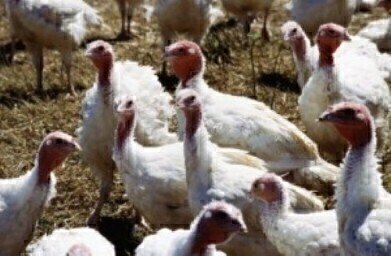-
 It is currently thought that the new strain is transferred through direct contact with poultry
It is currently thought that the new strain is transferred through direct contact with poultry
News
New strain of bird flu claims first life
Feb 05 2014
A new strain of bird flu has been detected in China and has already been linked to one death. According to a case report in the 'Lancet', the newly-emerged H10N8 virus caused the death of a 73-year-old woman in Nanchang City. A second case was also identified in Jiangxi Province in January and the patient remains critically ill in hospital.
This strain of bird flu has been seen before and scientists have warned that its potential to become pandemic "should not be underestimated". The identification of a second case shows that the virus has continued to circulate, which could result in more people falling ill.
Both of the infections were found to take place following human contact with live poultry. This contact suggests that birds are able to pass it on directly to humans, although this has yet to be confirmed. Scientists looking at this new H10N8 virus have suggested that it has developed genetic characteristics that could ultimately allow it to pass from human to human, resulting in more widespread cases of the virus. However, there is no evidence that this has yet taken place.
Scientists have stated that there is, as of yet, no immediate threat of the virus spreading.
Dr John McCauley, director of the World Health Organisation (WHO) Collaborating Centre for Influenza said: "The potential epidemiological significance of this zoonotic infection is not clear. Avian influenza viruses of the sub-type H10N8 are probably not particularly unusual. Whether there were complications in this case is unclear."
Currently scientists are more concerned with the outbreak of the H7N9 strain of bird flu, which emerged in China early in 2013. New cases of this strain of the virus are being reported every day in China, which was not thought to be as lethal as it has ended up being.
Dr Jeremy Farrar, director of the Wellcome Trust, said: "We should always be worried when viruses cross the species barrier from birds or animals to humans as it is very unlikely that we will have prior immunity to protect us.
"We should be especially worried when those viruses show characteristics that suggest they have the capacity to replicate easily or to be virulent or resistant to drugs. This virus ticks several of these boxes and therefore is a cause for concern."
Digital Edition
Lab Asia Dec 2025
December 2025
Chromatography Articles- Cutting-edge sample preparation tools help laboratories to stay ahead of the curveMass Spectrometry & Spectroscopy Articles- Unlocking the complexity of metabolomics: Pushi...
View all digital editions
Events
Jan 21 2026 Tokyo, Japan
Jan 28 2026 Tokyo, Japan
Jan 29 2026 New Delhi, India
Feb 07 2026 Boston, MA, USA
Asia Pharma Expo/Asia Lab Expo
Feb 12 2026 Dhaka, Bangladesh


















